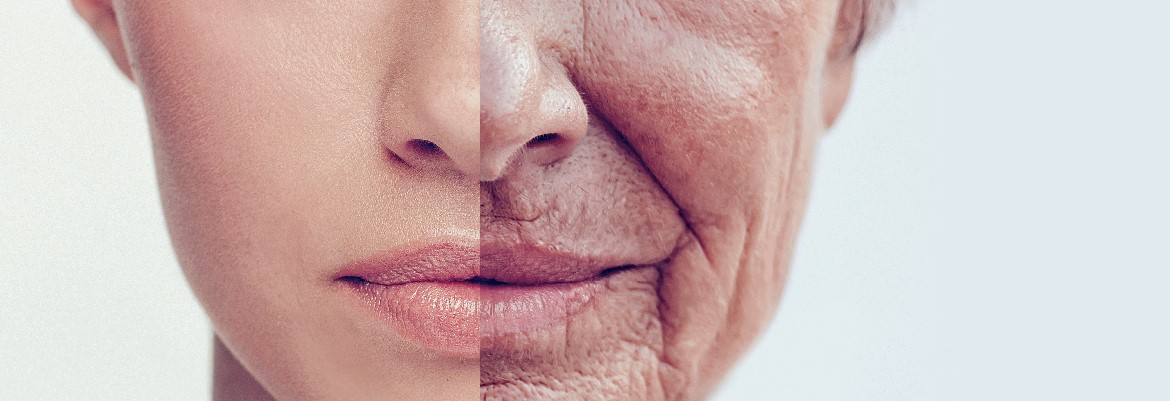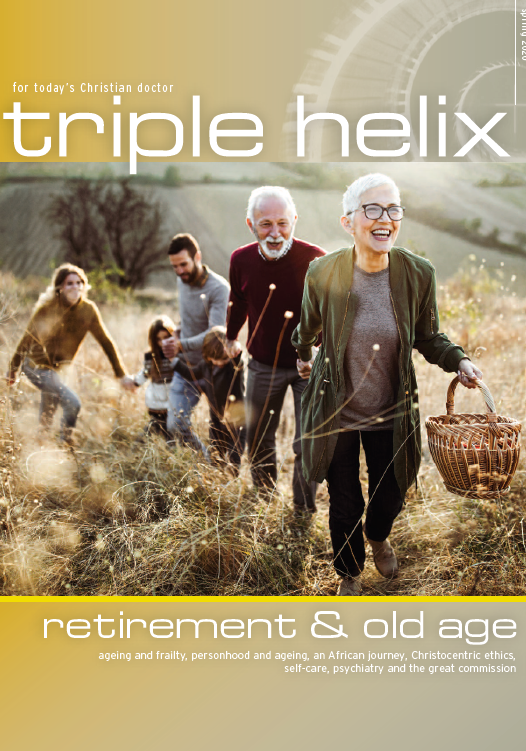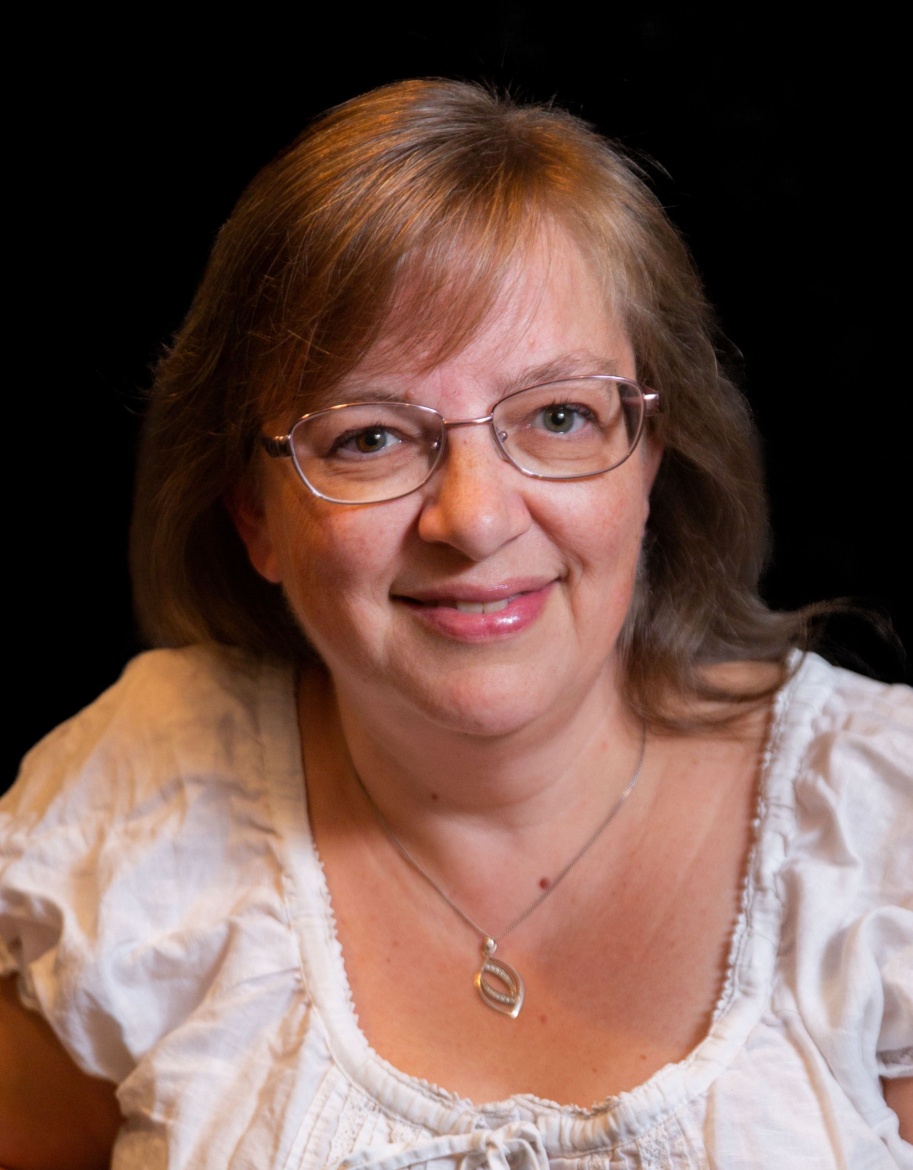Just last year an 81-year-old woman took her own life because a clerical error had deprived her of her pension and left her almost penniless. She had a loving son but didn't want to trouble him with her financial worries, so she ended her life instead. [1]
Youth is idolised. Independence is considered the noblest goal. Age is to be fought, resisted, hidden from view, denied at all costs. Until at last its clutches can be ignored no longer, and we surrender to obsolescence. No wonder so many of us fear it.
In God's eyes, however, to age is emphatically not to fail. Our bodies were designed to age. If they weren't, God would have created us with a different method of procreation than producing babies. Sickness and spiritual death are a result of the fall; ageing isn't.
This gives us an insight into how Christians can offer a radically different perspective on both our own ageing and that of our patients. While our bodies are changing minute by minute, one thing that stays constant is our inherent value as a unique member of the human race. In philosophy, this is referred to as our 'personhood'.
The idea that the word 'person' means something distinct from 'human' dates back to the philosopher John Locke in 1694. He defined a person as 'a thinking intelligent Being, that has reason and reflection, and can consider itself as itself, the same thinking thing in different times and places'. [2]
This idea has been hugely influential, and has obvious implications for bioethical questions, the most obvious being around beginning of life issues - does the unborn child 'have reason and reflection'? Can it 'consider itself as itself, the same thinking thing in different times and places'? How could we know? To many people, it seems obvious that the unborn child does not have these capacities, so while it may be demonstrably human, they argue that it does not have the morally relevant characteristics to be considered a person.
While we may counter that it has the potential to attain personhood, and thus should be given the appropriate rights and protections, this argument doesn't help us at the other end of life. As one's memory and other cognitive abilities fade, does one's personhood diminish? And what of those in comas or other disorders of consciousness? What about when we sleep? Do we lose our personhood every night? Any concept of personhood that relies on capacity - and the ability to communicate that one has that capacity - risks creating a subset of humans who have access to greater rights and privileges than others. It also opens the door to the possibility of granting personhood to non-human beings such as chimps, dogs or robots. [3,4,5]
The biblical view is that humans are both categorically different from animals, and inherently worthy of honour, provision and protection. There is no biblical distinction between a human and a person.
Another significant point is that the philosophical understandings of personhood are entirely individualistic. They are based on the person's understanding of him or herself in the world and make no reference to his or her relationship to others. The Bible, on the other hand, sees us as deeply relational beings. We were created by a relational God, 'in our image, in our likeness' (Genesis 1:26), and thus we were created by persons to be in relationship with persons. We are all interrelated and interdependent beings.
These points form two of the eight characteristics that describe aspects of what it is to be a person put forward by theologian Louis Janssens:
Eight aspects of what it is to be a person, as described by theologian Louis Janssens:
- A subject: A biblical understanding of personhood starts with the acknowledgement that human beings exist as creatures who are under the rule of God their creator. They are subjects of his authority.
- An embodied subject: As subjects, human beings are also defined by having a human body.
- Part of the material world: The first chapters of Genesis place humankind firmly within the created world.
- Inter-relational with other persons: In Genesis, God recognises that Adam is insufficient on his own and creates a companion, Eve.
- An interdependent social being: Personhood expresses itself in the way that we relate as social beings. [When on earth,] Jesus showed us an interdependent concept of relationship.
- Historical: Individual people exist within a historical framework.
- Equal but unique: Each person has equal rights, yet we are not all the same.
- Called to know and worship God: One feature of a person is his or her ability to know and respond to God.
Adapted from: Moore P. What is a person? CMF File 10, 2000. cmf.li/31S48aP
These form a helpful framework for building a Christian understanding of personhood. In 1 Corinthians 12, Christians are described as all being part of one body. Not only do our capacities and competencies not matter, but we are also all equally needed and valued. 'In fact, God has placed the parts in the body, every one of them, just as he wanted them to be.' (1 Corinthians 12:18) Furthermore, we all need each other. 'The eye cannot say to the hand, "I don't need you!" And the head cannot say to the feet, "I don't need you!". On the contrary, those parts of the body that seem to be weaker are indispensable '. (v21-22) 'Nor, for that matter, can one part or another say, "Because I am not a hand [or an eye], I do not belong to the body"'. (v15-16)
This last is particularly relevant for our dealings with those who are ageing. Paul recognises that even if it weren't for the external pressures, we often discount our own value. We look at the abilities and capacities of others and quickly conclude 'because I am not like that, I do not have value'. This can cut particularly deeply when considering things we used to be able to do with ease. To feel we no longer have the value we once saw in ourselves is sobering and upsetting.
As believers, we can give huge value and significance to others by refusing to accept that assessment of themselves and their worth. Of course, this passage is speaking about the particular case of the body of Christian believers, but every human being is equally loved by God and should be treated with the same attitude of indispensability and honour.
Much of ageing is about loss: loss of faculties, loss of mobility, loss of dignity, loss of community, loss of purpose. But it doesn't involve any loss of personhood, even in cases such as dementia where it may seem as though the person we once knew is no longer present. In a world that tells us to age is to fail, we can witness to the radical way of Christ simply by refusing to let ourselves, our patients or their families believe it.
Jennie Pollock is CMF Associate Head of Public Policy
































